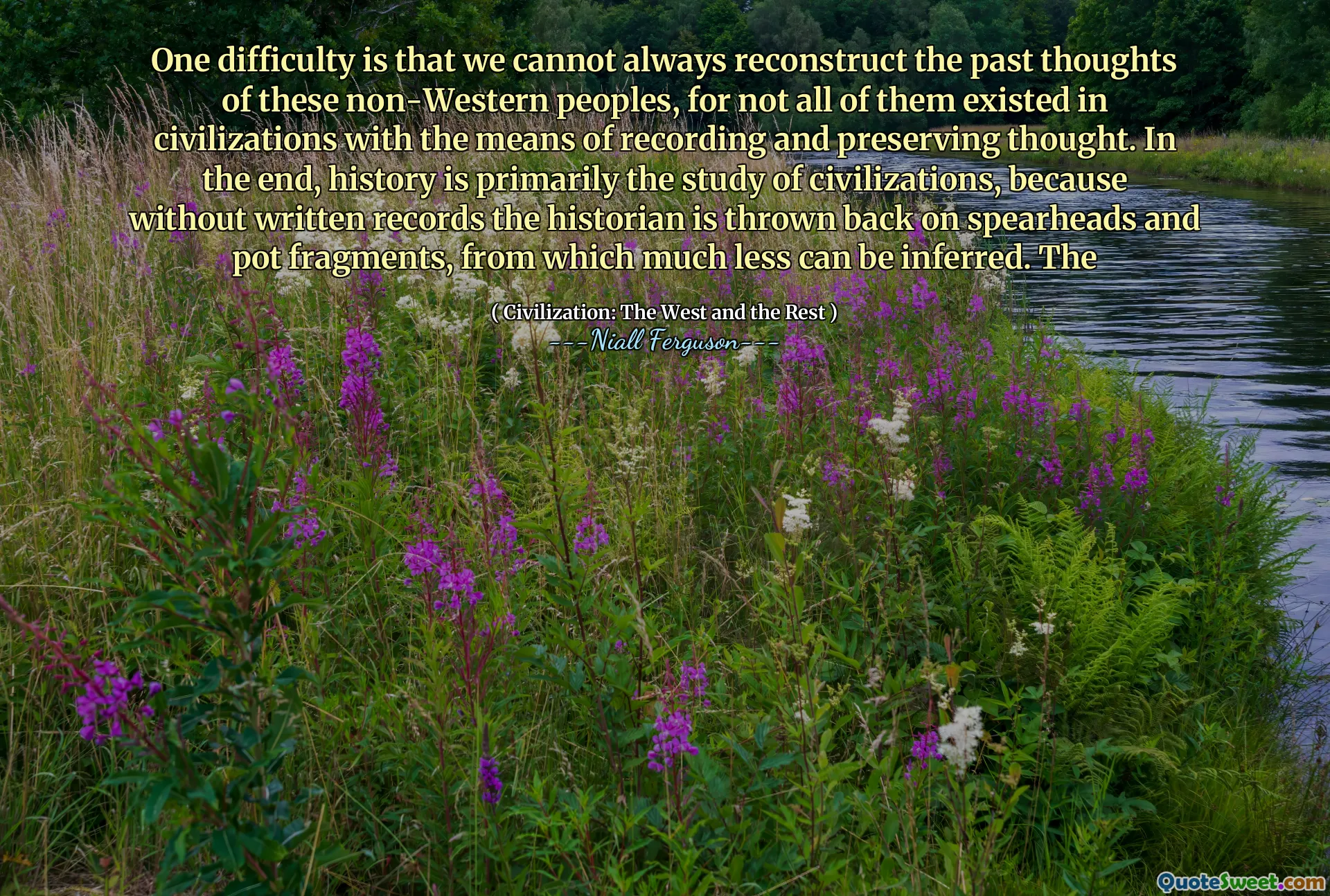
One difficulty is that we cannot always reconstruct the past thoughts of these non-Western peoples, for not all of them existed in civilizations with the means of recording and preserving thought. In the end, history is primarily the study of civilizations, because without written records the historian is thrown back on spearheads and pot fragments, from which much less can be inferred. The
Niall Ferguson, in his book "Civilization: The West and the Rest," discusses the challenges faced by historians when trying to understand the thoughts and beliefs of non-Western peoples. Many of these societies lacked the systems to document their ideas and histories, making it difficult to fully reconstruct their past. When written records are absent, historians must rely on material artifacts like spearheads and pottery, which provide limited insight into the civilization's thoughts and social structures.
This reliance on physical remnants highlights that history often revolves around civilizations that produced written documentation. The absence of such records can lead to a skewed understanding of human development and cultural evolution, as researchers are forced to piece together narratives from incomplete and sometimes ambiguous archaeological evidence. Therefore, Ferguson emphasizes the importance of written history in shaping our comprehension of various civilizations and their contributions to the world.











